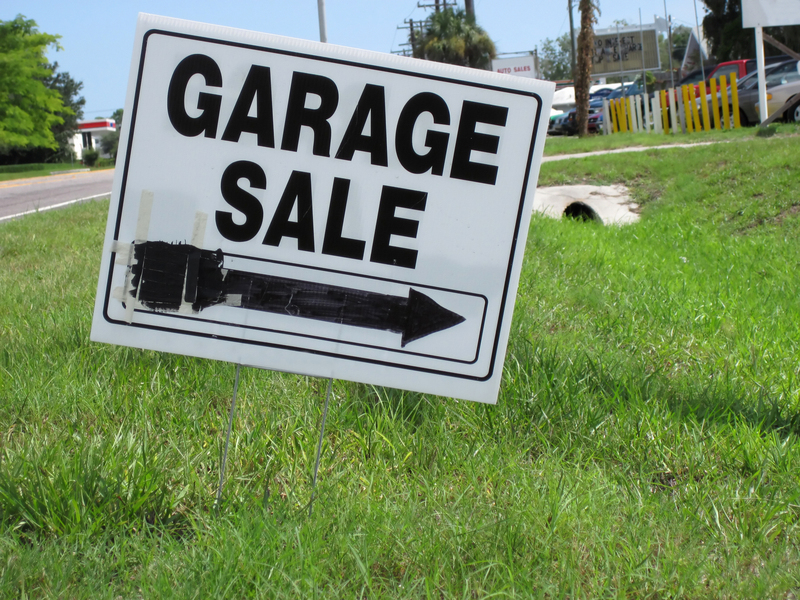How to Decrease Electronic Waste Easily
Posted on 26/05/2025
How to Decrease Electronic Waste Easily
Electronic waste, commonly known as e-waste, has become one of the fastest-growing waste streams globally. With the rapid advancement of technology, millions of electronic devices become obsolete every year, leading to an unprecedented increase in e-waste. This waste contains harmful chemicals and heavy metals that can pose serious environmental and health risks if not managed properly. However, there are several simple and effective ways to reduce electronic waste. This article aims to provide comprehensive strategies to help decrease electronic waste easily.
Understanding Electronic Waste
Before diving into the methods to reduce e-waste, it's essential to understand what constitutes electronic waste. E-waste refers to discarded electronic appliances and gadgets such as computers, smartphones, televisions, printers, and other electronic devices. These items often contain hazardous materials like lead, mercury, and cadmium, which can contaminate soil and water if not disposed of correctly.

1. Buy Less, Choose Wisely
The first step in reducing electronic waste is to be a conscious consumer. Before purchasing a new electronic device, ask yourself whether you truly need it or if it's just a want. Opt for devices that are designed to be durable and can be easily upgraded or repaired. Companies like Fairphone and Dell are known for their commitment to sustainability, offering products that are built to last and come with repairable parts.
Tips for Responsible Purchasing:
- Research the product's lifespan and repairability before buying.
- Look for brands that offer buy-back or trade-in programs.
- Choose energy-efficient devices to reduce environmental impact.
2. Extend the Life of Your Electronics
One of the most effective ways to decrease e-waste is to extend the lifespan of your current devices. This can be achieved through proper maintenance, timely repairs, and upgrades. Regularly clean your electronics to prevent dust buildup, which can cause overheating and other issues. Additionally, updating the software and hardware can significantly enhance the performance and usability of your devices, making them last longer.
Practical Tips to Extend Device Life:
- Follow the manufacturer's maintenance guidelines.
- Use protective cases and screen protectors for mobile devices.
- Keep your devices away from extreme temperatures and moisture.
- Use surge protectors to prevent damage from electrical spikes.
3. Recycle Properly
When electronics reach the end of their useful life, recycling them responsibly is crucial. Many electronic devices contain valuable materials such as gold, silver, and copper, which can be recovered and reused. Several organizations and companies offer e-waste recycling programs, making it easy to dispose of your old gadgets safely.
Steps for Proper Recycling:
- Research local e-waste recycling facilities and programs.
- Remove any personal data from devices before recycling.
- Follow the recycling guidelines provided by the facility or program.
- Consider donating functional devices to charities or schools.
4. Repurpose Old Electronics
Another effective way to reduce e-waste is to repurpose old electronics. Many devices can be transformed into something new with a bit of creativity and DIY skills. For example, an old smartphone can be used as a dedicated music player or a remote control for smart home devices.
Creative Repurposing Ideas:
- Turn an old laptop into a home server or media center.
- Use a tablet as a digital photo frame or e-book reader.
- Convert an old smartphone into a security camera or baby monitor.
5. Participate in Take-Back Programs
Many electronics manufacturers and retailers offer take-back programs for their products. These programs allow consumers to return old devices to the company for proper recycling or refurbishment. Participating in these programs ensures that your electronics are disposed of in an environmentally friendly manner and encourages companies to take responsibility for the entire lifecycle of their products.
Finding Take-Back Programs:
- Check the manufacturer's website for information on their take-back program.
- Look for retailers that offer in-store recycling drop-off points.
- Inquire about take-back programs when purchasing new devices.

6. Educate and Advocate
Education and advocacy play a significant role in reducing electronic waste. By raising awareness about the environmental and health impacts of e-waste, you can encourage others to adopt sustainable practices. Share information on social media, participate in community events, and support policies that promote responsible e-waste management.
Ways to Advocate for E-Waste Reduction:
- Organize e-waste collection drives in your community.
- Encourage local schools and businesses to implement e-waste recycling programs.
- Support legislation that promotes sustainable electronics manufacturing and recycling.
Conclusion
Decreasing electronic waste is a collective responsibility that requires conscious efforts from consumers, manufacturers, and policymakers. By implementing simple strategies such as buying less, extending the life of electronics, recycling properly, repurposing old devices, and participating in take-back programs, we can significantly reduce the environmental impact of electronic waste. Educating others and advocating for sustainable e-waste management practices further amplifies these efforts, creating a cleaner and healthier environment for future generations. With thoughtful actions and a commitment to sustainability, we can make a substantial difference in the fight against e-waste.
Latest Posts
Resource Efficiency with Polystyrene Recycling
Essential Hacks for a Tidy Home




